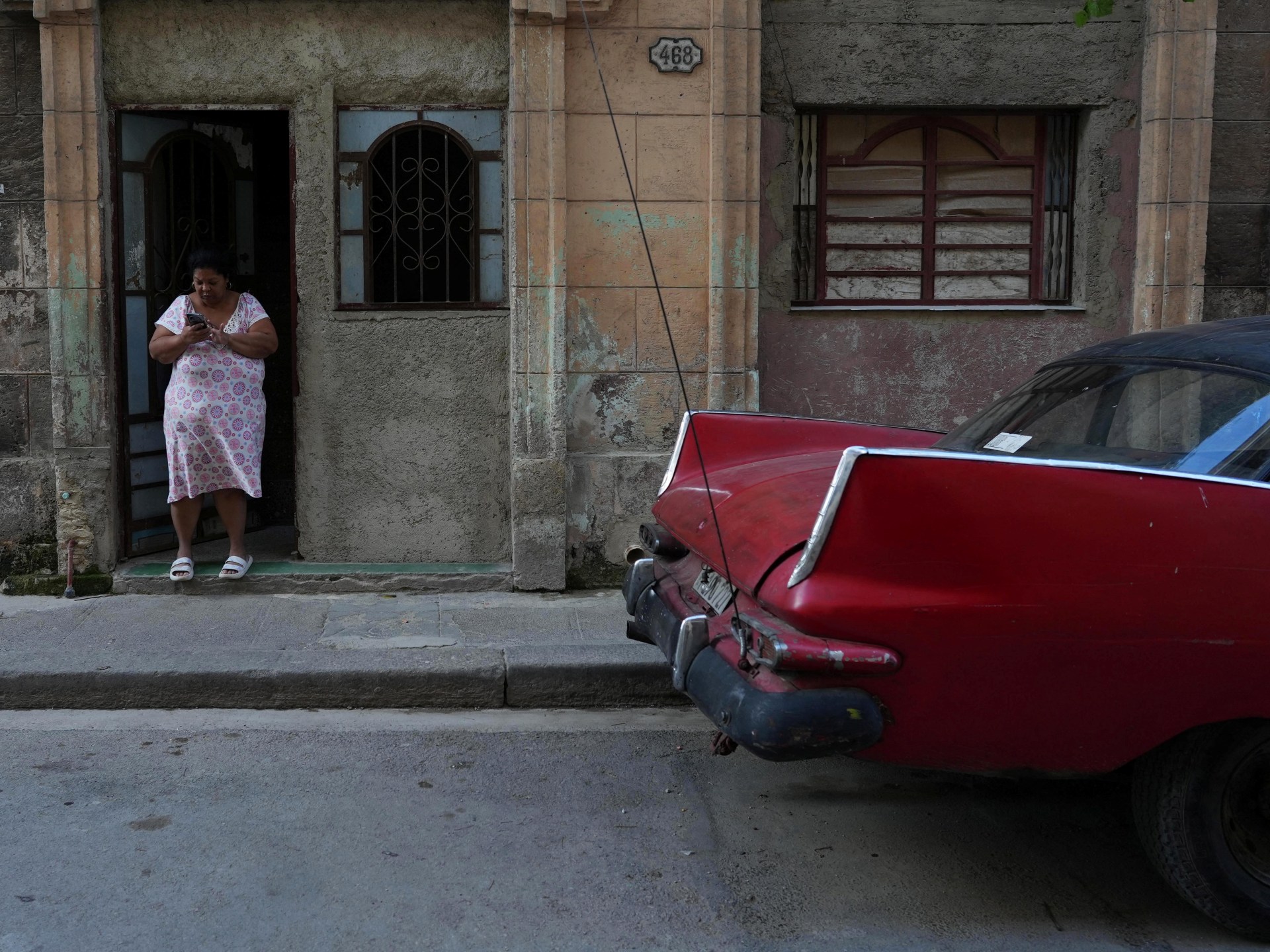School and work activities resume, but Cuban authorities say policy of rolling, five-hour daily blackouts will continue.
Authorities say Cuba’s national electricity grid has been reconnected but is still struggling to meet demand after a nationwide blackout left millions of people without power for hours.
The National Electric Union (UNE) said on Thursday that it had boosted generation to 1,450 megawatts (MW), still less than half the typical peak demand of 3,200MW.
“The [grid] is operating normally now, but because of a generation deficit we don’t have sufficient capacity to cover demand,” said Lazaro Guerra, who oversees the sector for Cuba’s Ministry of Energy.
This week’s nationwide blackout — the third in less than two months — occurred in the early hours of Wednesday after the Antonio Guiteras power plant in Matanzas, the country’s top electricity producer, shut down.
That triggered a chain reaction, overwhelming an already strained power system and leaving the capital, Havana, in the dark.
Cuba’s oil-fired power plants are decades old and struggling to operate, but this year brought additional struggles, as oil imports from Venezuela, Russia and Mexico dwindled.
About half of the Caribbean nation’s power generation facilities are offline for maintenance or broken down, and a majority of Cuba’s residents suffer hours-long, rolling blackouts on a daily basis even when the grid is functional.
On Thursday, classes and work activities gradually returned to normal after the nationwide blackout.
Power had returned to all of Havana’s “circuits”, the local electric company said, and all of its hospitals were back online.
But the Cuban authorities said they will continue their current practice of implementing daily, five-hour power outages by block or zone as they have been doing for the past few months amid the energy crisis.
The Cuban power grid collapsed multiple times in October as fuel supplies dwindled and Hurricane Oscar struck the far-eastern end of the island, prompting authorities to close schools and nonessential workplaces.
In November, Hurricane Raphael knocked out the grid again as it made landfall on the island as a Category 3 storm.
